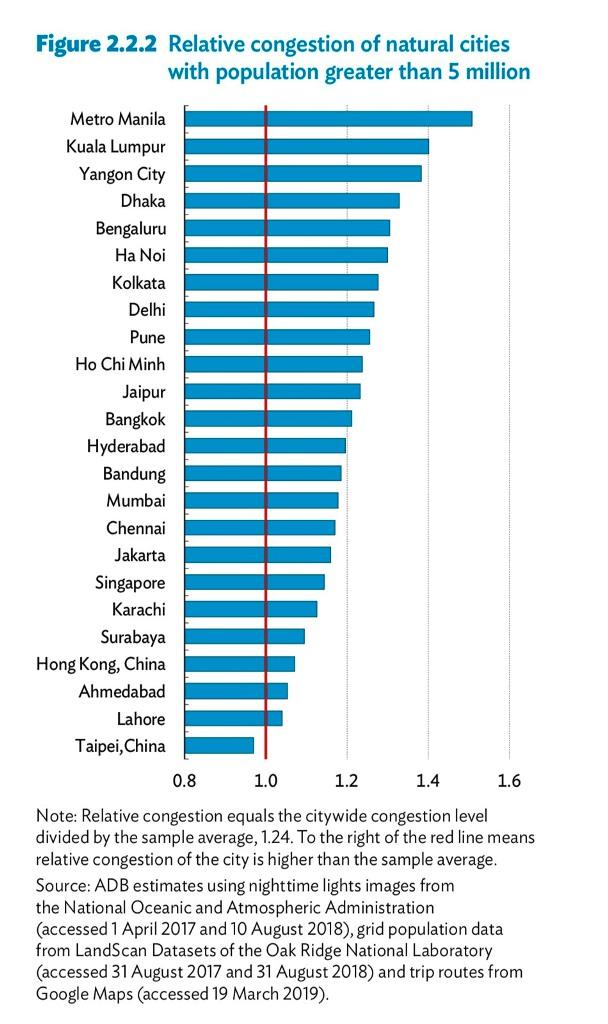Metro Manila is the most congested city in developing Asia —ADB study
Metro Manila, the Philippines’ economic center in the capital region, is the most congested city in Asia, a study by the Asian Development Bank (ADB) showed.
Metro Manila is “the most congested city in the developing Asia,” ADB director for Macroeconomics, Economic Research and Regional Cooperation Adbul Abiad said in a press conference in Mandaluyong City on Wednesday.
The Manila-based ADB studied 278 cities to measure citywide congestion.

“Congestion arises when demand for travel exceeds the maximum capacity of the transportation network,” according to the ADB’s latest Asian Development Outlook released on Wednesday.
Across the 278 cities, the average citywide congestion was 1.24, which means that on average 24% more time is needed to travel during peak hours than off-peak hours.
The study used nighttime lights from satellite images of the National Oceanic and Atmospheric Administration, grid population data from LandScan Datasets of Oak Ridge National Laboratory, and trip routes from Google Maps to measure travel time during peak and off-peak hours.
Metro Manila’s congestion was around 1.5, the highest among the 24 largest cities in the region.
This means commuting or traveling in Metro Manila requires longer time to get from origin to destination. It was followed by Kuala Lumpur in Malaysia with a congestion index of 1.4 and by Yangoon City in Myanmar with an index of 1.38.
“How long does it take you to get from wherever you live? If you think about people commuting for an hour or two each way every day, think about the lost productivity,” Abiad said.
The bank noted that population growth imposes pressure on mobility in a city, and spatial expansion is necessary to some extent to mitigate the pressure.
To solve Metro Manila’s congestion, Abiad cited the need to build more public transport systems.
“Build public transport ... and make developments walkable, and have easy access to transport,” he said.
In terms of congestion’s economic cost, the ADB official cited the Japan International Cooperation Agency’s (JICA) study.
As of 2017, JICA estimated that the cost of congestion on the Philippine economy has reached P3.5 billion per day. —VDS, GMA News




